Search Results
Showing results 761 to 780 of 860
Find Someone: Use Math to Learn About Friends
Source Institutions
Create a “Find Someone” list, with about 10 items, each containing a shape, number, or measurement. Can you find someone in the group with hair about 4 inches long? Someone wearing parallel lines?
Sea State: Forecast Conditions at Sea
Source Institutions
In this oceanography and data collection activity, learners cast real time sea state conditions using buoys from NOAA's National Data Buoy Center.
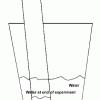
Percentage of Oxygen in the Air
Source Institutions
In this activity, learners calculate the percentage of oxygen in the atmosphere by using steel wool's ability to rust.
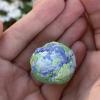
Seed Orbs
Source Institutions
In this activity, learners will make seed orbs to grow new trees and plants. Learners will explore ecology and life cycles as well as stewardship through this activity.

Paper Cutting
Source Institutions
In this activity about scale, learners investigate the world of the very small by cutting a 28 centimeter strip of paper in half as many times as they can.

Measure the Pressure: The "Wet" Barometer
Source Institutions
In this activity, learners use simple items to construct a device for indicating air pressure changes.

Measuring Wind Speed
Source Institutions
In this indoor and/or outdoor activity, learners make an anemometer (an instrument to measure wind speed) out of a protractor, a ping pong ball and a length of thread or fishing line.
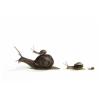
Small Snails, Enormous Elephants
Source Institutions
This activity (located on page 2 of PDF) introduces learners to the real size of animals using nonstandard measurement.
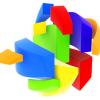
Crazy Shapes
Source Institutions
In this activity, learners cut a shape into two equal sized pieces and use their knowledge of geometry and space to prove that the two parts are equal.
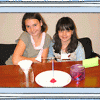
Make Your Own Weather Station
Source Institutions
This three-part activity shows learners how to build three meteorology tools: a wind vane, a rain gauge, and a barometer.
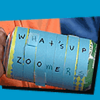
Scytale Messages
Source Institutions
In this activity, learners use a soda can to decode a secret message. Learners wrap scytale (pronounced ski-tally) code around a can and challenge friends to see if they can crack the codes.

Scale Models
Source Institutions
In this activity, learners explore the relative sizes and distances of objects in the solar system.

Size It Up
Source Institutions
In this artistic activity, learners blow up a smaller picture into a larger one, by using a grid.
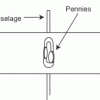
Lift Experiment
Source Institutions
In this experiment, learners investigate how the size of a wing affects lift. Learners count the number of pennies an egg crate plane wing can hold until the plane will no longer fly.
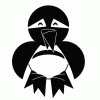
Fraction Penguin
Source Institutions
In this craft activity, learners will recognize, name, and compare the fractions 1/2, 1/4, and 1/8 by constructing a penguin out of portions of paper circles.

Hatch-a-Cyst
Source Institutions
What is the optimal environment for hatching brine shrimp? Using a scaffold, learners design and conduct experiments testing the effect of a single abiotic factor on brine shrimp cyst hatch rate.
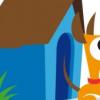
Subtracta's Dog
Source Institutions
In this math activity related to volume, learners use problem solving skills to calculate and build a model house for Minus the dog.
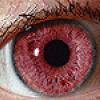
Pupil to Pupil
Source Institutions
In this quick and simple activity about reflexes (at the top of the webpage), learners conduct a simple test to explore pupillary response.
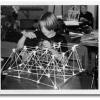
Skewers and Garden Poles
Source Institutions
In this activity, learners build scaled-down structures and cantilevers in a series of "building out" challenges with bamboo skewers and tape.
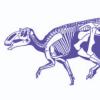
Dinosaur Skull and Body Length Predictions
Source Institutions
In this activity (located on page 2 of PDF under GPS: Baby Dinosaurs Activity), learners will look for a relationship between skull size and body length among various dinosaurs.
